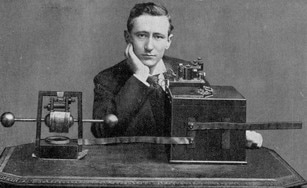 In daily life we know that professionals rule the roost. Anything remotely important is done by a profession with restricted access to practice and many rules for practitioners -- or it is done illegitimately. Did you undergo medical treatment last time you were ill, or did you see a homeopath? Many activities that seem easier and safer also take on profession-like features. Espresso making is done by a high-pressure machine, but there is still a barista profession with formal training and certification. Researchers also have been interested in professions, especially because their effects range from regulating the safety and quality of important service (again, think doctors) to restricting access to work in a way that looks like a power grab (pick your favorite example). So is there room for non-professionals to get things done? Gregoire Croidieu and Phillip Kim answer that question in a recent article in Administrative Science Quarterly, looking at the key role of amateurs in the development of radio broadcasting in the US. They show that amateurs can get a significant role if the right conditions are in place, even as professionals, companies, and the state seek to push them to the margins. How? Well, that’s where the war, polar exploration, and interference come in. Let’s start with interference. Technically that is what happens when radio transmitters are near each other in signal spectrum and physical space, and distort each other’s transmissions. It was a major reason that many sought to limit access to the airwaves of amateurs, especially those building their own transmitters and behaving independently from the profession. Socially the limitation of access was also a form of interference – trying to make it hard to be an amateur. But radio amateurs were enthusiastically building up their lay expertise and using it, legally or not. Except for the WWI years, they could be given access as registered radio operators. That brings us to the war. WWI was when radio amateurs were blocked from the airwaves, with security given as the reason, but it did not mean that they stopped broadcasting. They signed up for military service instead, and fully half of the military radio operators were originally amateurs. This was when the state recognized the value of the lay experts, and took advantage of their skills. After the war, they were supposed to return to their old status as marginal actors, more than before (rising to 20,000 in 1922), but still regulated and limited. Professional radio operators still campaigned against amateurs, seeing them as having little value. This is where the polar explorations come into play. The amateurs were many, highly skilled, and willing to experiment, and they soon registered a series of technical accomplishments – including shortwave communications with the North Pole, which had been thought impossible. The amateurs, through their lay expertise, became leaders in radio. This role soon turned into the start of radio as an industry and as lay culture, because the establishment of radio stations for communicating to many – instead of point-to-point – happened in parallel. Radio ownership and interest in radio listening rose also, and the radio broadcasting industry eventually grew to as many radio stations as there were licensed radio operators in 1921. War, exploration, and interference were three of the elements that brought amateurs to the forefront of radio, against the resistance of professionals, companies, and the state. Clearly it was not an easy process, and it took a lot of interest to gather the necessary momentum. Does this show that amateurs have a clear role in society, or that they can overcome the odds under special circumstances? We clearly need to learn more about this so we can understand when activities become professionalized, and when they are open to amateurs. Croidieu, G., Kim, P.H. (2017). Labor of Love: Amateurs and Lay-expertise Legitimation in the Early U.S. Radio Field. Administrative Science Quarterly. Comments are closed.
|
Blog's objectiveThis blog is devoted to discussions of how events in the news illustrate organizational research and can be explained by organizational theory. It is only updated when I have time to spare. Archives
May 2024
Categories |
 RSS Feed
RSS Feed